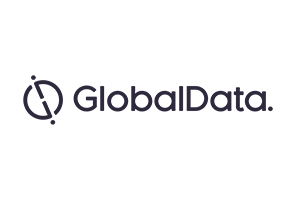In January 2017, Pfizer submitted a new application to the FDA for its controversial leukemia drug Mylotarg (gemtuzumab ozogamicin), which was used from 2000–2010 for the treatment of elderly patients (60 years and older) with acute myeloid leukemia (AML) that relapsed following initial treatment.
Mylotarg, an anti-CD33 directed therapy, was the first antibody-drug conjugate (ADC) to be launched in the US. In 2005, it was approved for marketing in the same setting in Japan. In 2010, Pfizer voluntarily removed the drug off the shelves in the US following a lack of clinical benefit and excessive treatment-associated toxicity in the post-approval confirmatory clinical studies. Almost two decades after its initial launch, Pfizer is hoping for a second FDA approval, this time for the front-line treatment of patients with newly diagnosed AML. The company also submitted a marketing authorization application for the same treatment setting in Europe in December 2016.
A prospective approval for front-line AML in the US and Europe would significantly boost the number of patients that can be treated with Mylotarg. However, Pfizer’s prototype anti-CD33 ADC is not the only CD33-directed ADC eyeing a share of the eligible treatment population in AML. GlobalData anticipates that Mylotarg will need to overcome strong competition from next generation anti-CD33 ADCs, such as Seattle Genetics’ vadastuximab talirine and Actinium Pharmaceuticals’ Actimab-A, before it can make it onto the list of lucrative marketed therapies in Pfizer’s oncology portfolio.
Pfizer is positioning Mylotarg in combination with the intensive front-line 7+3 chemotherapy regimen in a broader patient population that includes both young (less than 60 years) and elderly (60 years and older) patients. The company appears to have addressed the adverse safety profile initially observed with this combination by reducing Mylotarg’s dosing, and also improved on its efficacy by administering it in fractions. An improved tolerability of Mylotarg in combination with 7+3 is expected to significantly maximise use of the drug in young patients. However, GlobalData anticipates modest adoption for this combination in elderly patients, as the majority of them are not fit enough to receive 7+3 and are typically treated with milder, low-intensity regimens such as low-dose cytarabine, azacitidine, or decitabine. Unlike Mylotarg, both vadastuximab talirine and Actimab-A are paired with low-intensity regimens, and are therefore better positioned to benefit elderly patients who cannot tolerate 7+3.
In young patients, vadastuximab talirine is the more likely candidate to pose a significant threat to Mylotarg; in early stage clinical trials, the former improved clinical efficacy and resulted in earlier clinical responses in combination with 7+3. If similar results are confirmed in late-stage trials, vadastuximab talirine may have a chance to differentiate itself from Mylotarg and grab a piece of the latter’s share in young patients. However, vadastuximab talirine’s early stage clinical trials are under an FDA-imposed clinical hold, effective as of late December 2016, due to the same safety signals that were once seen in Mylotarg’s post-approval studies. This will likely slow down the candidate’s late stage clinical development in young patients, providing Mylotarg with more time to establish itself in this segment.
GlobalData anticipates Mylotarg to gain easy access to the eligible patient population early upon its prospective launch in Q4 2017. Mylotarg has been investigated in numerous clinical studies for almost two decades now. Therefore, an extensive number of physicians are familiar with the drug, and are experienced with its use and how to manage its side effects. With physician familiarity on its side and having first-to-market advantage, Pfizer is well-positioned to consolidate Mylotarg’s place in the AML market ahead of the launch of competitors vadastuximab talirine and Actimab-A.

US Tariffs are shifting - will you react or anticipate?
Don’t let policy changes catch you off guard. Stay proactive with real-time data and expert analysis.
By GlobalData



